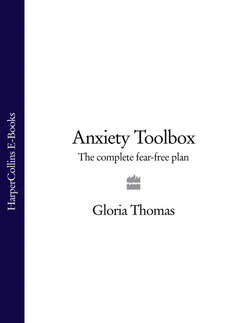Читать книгу Anxiety Toolbox: The Complete Fear-Free Plan - Gloria Thomas - Страница 65
The Detrimental Effects of Cortisol
ОглавлениеExcess cortisol can counteract the body’s natural sleep cycles by interfering with the circadian rhythm – the 24-hour schedule that our bodies run to. Normal cortisol levels vary over this period, peaking early in the morning and gradually reducing during the day. Excess cortisol can therefore stimulate the body when it should be asleep.
If the level of cortisol is elevated whilst we are asleep, this can also interfere with the body’s ability to repair and maintain itself. Elevated cortisol primes the body to use resources; therefore many of the tasks that usually occur during sleep, such as bone and skin regeneration, are postponed. This can lead to poor bone growth and repair, and accelerated ageing.
Excess cortisol has a detrimental effect on the immune system, making us more susceptible to viral infections.
Cortisol plays a role in depression. It does this by affecting the levels of neurotransmitters in the brain. Neurotransmitters are chemical messengers that are thought to underlie all brain function by carrying information direct to and from the cells. One of the main neurotransmitters is serotonin, which has a positive effect on your mood. If normal levels of serotonin are interrupted by excess stress hormones then you may find yourself feeling blue. Excess cortisol also has a toxic effect on the brain, affecting memory and concentration.
One of the functions of cortisol is to break down muscle and convert it into energy when necessary; therefore excess cortisol can lead to muscle loss.
Elevated cortisol levels can also lead to excess body fat. When we are stressed the body responds by thinking it is in a crisis situation and stocks up on stores for the future. If you are suffering from ongoing anxiety, you don’t eat much and yet you are overweight, excess cortisol may be to blame.
Last but by no means least, excess sympathetic arousal of the body, and elevated cortisol, depletes the body’s energy reserves. Anxiety uses up more energy than a balanced, relaxed state. If you feel constantly tired, have difficulty getting up in the morning and experience energy slumps throughout the day, this may be the result of excess cortisol.
If stage two of the stress response continues for a prolonged period, with inadequate rest and relaxation to counterbalance it, then the body will eventually reach stage three – exhaustion. At this stage, your adrenal hormones will have been depleted to the point where your tolerance to stress is decreased. In addition, your resistance level will drop and you will experience mental and physical exhaustion.
